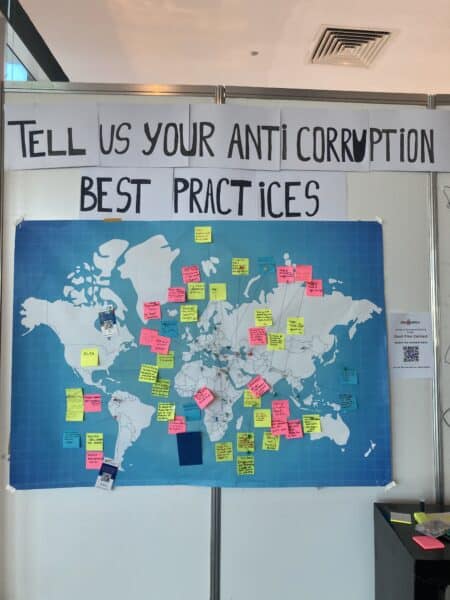31 January 2022 –
At the 9th session of the UNCAC Conference of the States Parties (CoSP), 7 resolutions and 2 decisions were adopted (find them in full here). While CoSP decisions address procedural issues related to the organization of the conference, CoSP resolutions are mostly substantial and aim to put a spotlight on ongoing and emerging issues that pose challenges to the effective implementation of the UNCAC.
The resolutions’ operative paragraphs direct the work of the CoSP and its subsidiary bodies and also provide UNODC with specific mandates to advance work on specific issues. At the same time, although not legally binding (unlike the UNCAC itself), CoSP resolutions set standards and provide guidance to States Parties on specific anti-corruption measures that they are expected to take on the national level, to better implement the convention.
In this blog post, we present a summary of the operative aspects of all CoSP9 resolutions and decisions. Each resolution summary includes the following sections:
- The aim of the resolution,
- The list of co-sponsoring States Parties (the upcoming official CoSP final report might include more co-sponsors),
- An analysis of the operative paragraphs, including actions that should be taken by the States Parties, UNODC, and if relevant, the mandates that are given to CoSP subsidiary bodies.

Negotiated under the “Vienna spirit of consensus”, CoSP resolutions are negotiated until all countries agree on the text and thus reflect the lowest common denominator, and in many cases include intentionally vague commitments that allow different interpretations by different States Parties.
Resolutions are solely negotiated by the States Parties of the UNCAC; civil society has no formal role in the preparation and adoption of resolutions and is not able to observe these negotiations.
While many operative paragraphs include caveats that recognize countries’ limitations and varying national legal frameworks, it is important to highlight that all CoSP9 resolutions were adopted by consensus, and all States Parties are expected to take actions to implement the commitments made therein. Moreover, the States Parties that initiated and tabled the resolutions, and States Parties that decided to join resolutions a co-sponsors, signal a stronger commitment to the issues dealt with in a resolution.
The role of civil society in promoting implementation
For a full overview of the UNCAC Coalition's CoSP 9 outputs visit the CoSP 9 dedicated webpage.



